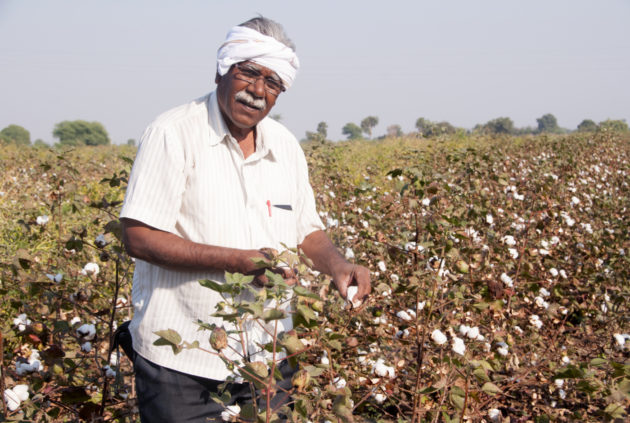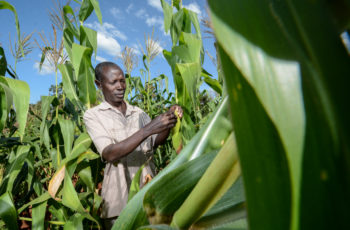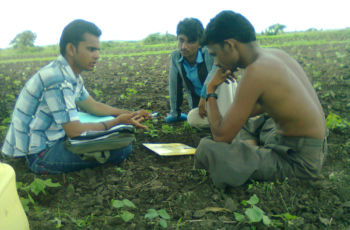Overview
Researchers
Shawn Cole
Professor in the Finance Unit at Harvard Business School
Tomoko Harigaya
Director of Research, Precision Agriculture for Development (PxD)
- Country
- India
- Timeline
- 02/01/2017 - 02/28/2018
- Constraints
- Information
- Technology Category
- Extension, Fertilizer, Inputs, Soil Testing
- Sample
- 4,200 cotton farmers in Gujarat

Photo Credit: Precision Agriculture for Development
Fertilizer can enhance soil nutrients and increase crop yields, but farmers’ gains from the use of different types of fertilizer is highly contingent upon the nutrient composition of soil. Farmers often make decisions about the use of fertilizer based on soil tests that are averaged over large tracts of land. Because nutrient composition of soil can vary widely within even very small areas, recommendations may not match farmers’ conditions on their own plots. As a result, farmers may make input decisions on poor information for their own personal context. For example, in the context of this evaluations, farmers frequently overuse fertilizers.
Researchers are conducting a randomized evaluation in Gujarat, India to determine whether larger-scale publicly available soil data meets farmers information needs and to test the impact of targeted input recommendations for cotton farmers. The evaluation aims to determine whether plot-specific or less granular recommendations for nutrient management can more cost-effectively improve input adoption decisions and productivity with high returns for farmers.
Researchers will assign 4,200 cotton farmers in 48 villages to one of three information sources and one of two delivery channels. Villages will be randomly assigned to receive information that is (i) customized at the plot-specific level, (ii) customized at the 10-acre grid composite-level, or (iii) the government-generated fertilizer recommendations. Researchers will compare inputs practices and yields across farmers who receive information of varying specificity. Villages will receive this information either through (a) an established mobile phone-based agricultural advisory service or (b) soil health cards. Researchers will assess differences in uptake across the two distinct channels of information delivery. Researchers will also investigate whether returns vary for different types of farmers, the relevant variability in soil nutrient composition, and how the soil nutrient variability affects fertilizer recommendations across relatively proximate cotton farmers.
Working with Precision Agriculture for Development, the team will also perform A/B experiments around the timing and content of messages to understand impacts on input adoption practices. Soil testing validation exercises will identify and evaluate field-based soil testing kits and scanners as lower cost alternatives to lab-based testing. If these lower cost soil testing technologies perform well in India, or cost-effective technologies exist that have been tailored to the African setting but remain un-tested by independent researchers, the research team plans to pilot quality validation exercises of the kits in at least one Sub-Saharan African setting, most likely Kenya.
This pilot is ongoing, and findings are forthcoming.

